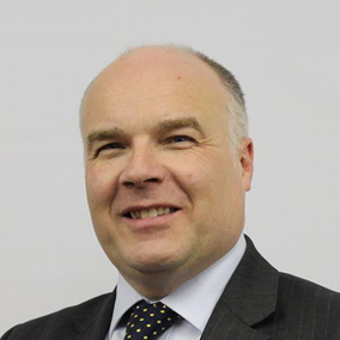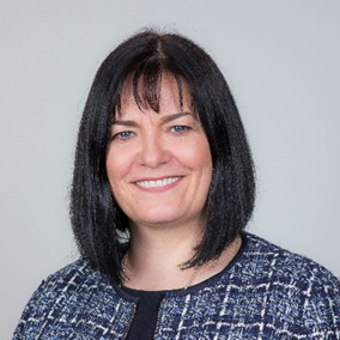Sam discusses why he does the job he does and how you can make the workplace somewhere to grow and thrive
“Why do you do what you do?” a coach asked me recently.
This struck me as a little odd – I'd gone to a coach to help improve some areas of my practice – not to articulate my Weltanschauung.
However, she was the expert and I was there to learn. Mine was – as Tennyson puts it – 'not to reason why'. Out tumbled the response: “I do what I do because I want to make a positive difference in people's lives. I want to help people unlock their talent, challenge themselves and learn, develop. I want to see them fly."
Had my University roommate been there in the room, he would have chuckled and said: "Sam – that all sounds a bit Emily Bronte!"
Here’s the thing though. That statement came from the heart, and it actually means something to me.
Call me an idealist, but I think we and our teams are looking for meaning and purpose to what we do for any number of reasons – maybe intellectual satisfaction, prestige, helping those less fortunate than us, social justice, proving oneself, living up to expectations placed on us by others – the list goes on.
I've been fortunate in my life to have crossed paths with many incredibly bright and talented senior people. Those who have spent time with me, patiently explained things that I didn’t get (until the proverbial penny dropped), encouraged me, inspired me and showed me kindness – it's from those people I have learned the most, and it's their example I want to copy. My former supervisor Paul Rawlinson sadly passed away recently, but left a legacy of inspired people, a resilient "can-do" attitude and a cheeky sense of humour. In short, he used his platform to inspire and influence for the better. What a wonderful legacy.
My experience is that the more senior you become, the more people will look to you for guidance and inspiration. This means you have a huge platform for doing the right thing and helping people. And a huge responsibility (whether you like it or not) to treasure very carefully the trust they place in you.
It is incumbent on us to provide opportunities for development for hard-working junior colleagues, to help them stretch and grow. We may work with them for many years or maybe only a short space of time, but either way, we want to help them develop their wings and strengthen those muscles.
I'm very fortunate to be in a firm which accommodates people with a broad and diverse range of talents, and encourages people to be authentic. This makes for a rich tapestry of folk with fascinating lives that I get to work with – which is fab, as I get to learn lots too!
We try to create an atmosphere which encourages uniqueness and personality, rather than a rigid environment that demands conformity to a type. And we try to encourage people to learn from mistakes – we've all made them, and what marks out successful people is an ability to learn and grow, so that they're not repeated.
And we, as leaders, need to keep open minds and not blindly insist we are right. We might not always be right – now there's a thought! As Yehuda Amichai writes: 'From the place where we are right, flowers do not grow in the spring. The place where we are right is hard and trampled, like a yard.'
There are a number of things we can do to make the workplace better for our colleagues – each is worthy of a separate topic in itself. I've chosen three which I think are key to making the workplace somewhere we can grow and thrive:
1. Curiosity and challenge
Are we curious? Do we want to learn more and stretch and develop? Are we interested in why things are the way they are? Or have we reached a point where we think we know pretty much everything we need to know? [1] Do we ask "why"? Do we ask ourselves what we can learn from any given situation (whether things are going well or not so well)? Is every moment (including when we fail [2]) an opportunity to learn? After all, we work in a profession where we are paid to bring certainty and a definitive answer. Can questioning really help in that process?
But in our drive to be right / to be perfect, we can miss the little things that can make all the difference. For example, why is the counterparty in a negotiation raising their voice? Is their anger masking a deeper uncertainty and fear that we can help allay by offering a short break and, heaven forbid, offering them a cup of tea and a posh biscuit (instead of raising our own voice to drown theirs out)? Might we get a better outcome for our client as a result? Can we demonstrate that to our junior colleagues, or do they see us getting slowly nowhere, our faces growing ever redder?
Or have we noticed our colleague is a little quieter than normal today? Can we offer a listening ear, or are we too engrossed in perfecting a legal note or worrying about the next panel presentation? Is it our job to even notice our colleague? [3] What can we learn from that? Do we need to put down our pen / phone and offer our time to listen?
The point is that the best leaders are curious. They listen and learn. Greek philosopher Epictetus wrote: 'We have two ears and one mouth so that we can listen twice as much as we speak'. We cannot be curious if we're doing all of the talking and none of the observing!
2. Owning behaviours and role modelling
As we became more senior in our careers, we will have observed behaviours of those ahead of us. Hopefully we were able to distinguish the good behaviours from the not so good behaviours.
Whether we realise it or not, we have a choice in every moment. Sometimes we'll make good choices, sometimes not so good. Auschwitz survivor and neurologist Viktor Frankl famously wrote: 'Between stimulus and response there is a space. In that space is our power to choose our response. In our response lies our growth and our freedom.'
Does this mean that we own our response to any given situation? Well, let's take a hypothetical scenario.
Stimuli: (1) your client is placing unrealistic demands on you; (2) you've worked late the last three nights, and you're tired and irascible; (3) a colleague has just passed you a piece of work which you know they didn’t give 100% on; and (4) your laptop has just crashed, and the complex document you're working on is probably lost (with all of your wonderful drafting).
Let's face it: unless you're a Zen master, you'll find that scenario at the very least mildly irritating.
But here's the thing: we have a little space to choose our actions before we commit to them.
Response (Option 1): In that space we can choose whether to take a deep breath, a short break, a little walk to clear the head, then come back and calmly arrange a time to speak to our colleague another day. We can model a good behaviour.
Response (Option 2): In that space we could instead choose (perhaps understandably) to get cross, swear at the laptop, snap at the colleague and feel terribly hard-done by, and make sure everyone knows it. We can model a not so good behaviour.
The point is that either option is a choice, but if we commit to Option 2, it will not be of benefit to our team members, and some may even then incorporate Option 2 into their game (consciously or sub-consciously). And, although that then becomes their choice, we will have helped them to make it (because we showed them it was acceptable), and we will bear more than a little responsibility.
3. Humour
I'll mention this only briefly, but it's important in my view.
Alongside our striving for self-betterment and professional improvement, we do well to retain a healthy sense of humour, and remember we are human. There is no cognitive dissonance between being a professional and inserting a well-placed pun into a team meeting or a negotiation. It can help break tense moments, and draw a collective groan in meetings. Uniting people in common despair at your woeful wordplay. The famous author Maya Angelou once went as far as saying that she didn’t trust anyone who didn't laugh.
Obviously there is a balance – we need to know when to be serious and when to laugh. A time for everything, as the saying goes.
In summary – we can make our workplaces better and inspire, nurture and develop our colleagues. It will involve us working hard to look inwardly, identifying and working on our weak spots, and deciding how best we can utilise the platform we have – hopefully for the better. Creating a professional environment, doing amazing work for all sorts of interesting clients, working with a fascinating and diverse group of clever folk, developing and stretching ourselves along the way.
All whilst having fun? Surely, you can’t be serious?
Well, I am serious. And don’t call me Shirley.
[1] A worrying place to be – where do you go from there?
[2] Because we always will fail from time to time, if we're trying to improve.
[3] The answer is "Yes", in case of interest. But if your answer was "No", that's interesting – it might be worth thinking about why (if you're curious and open to change).











